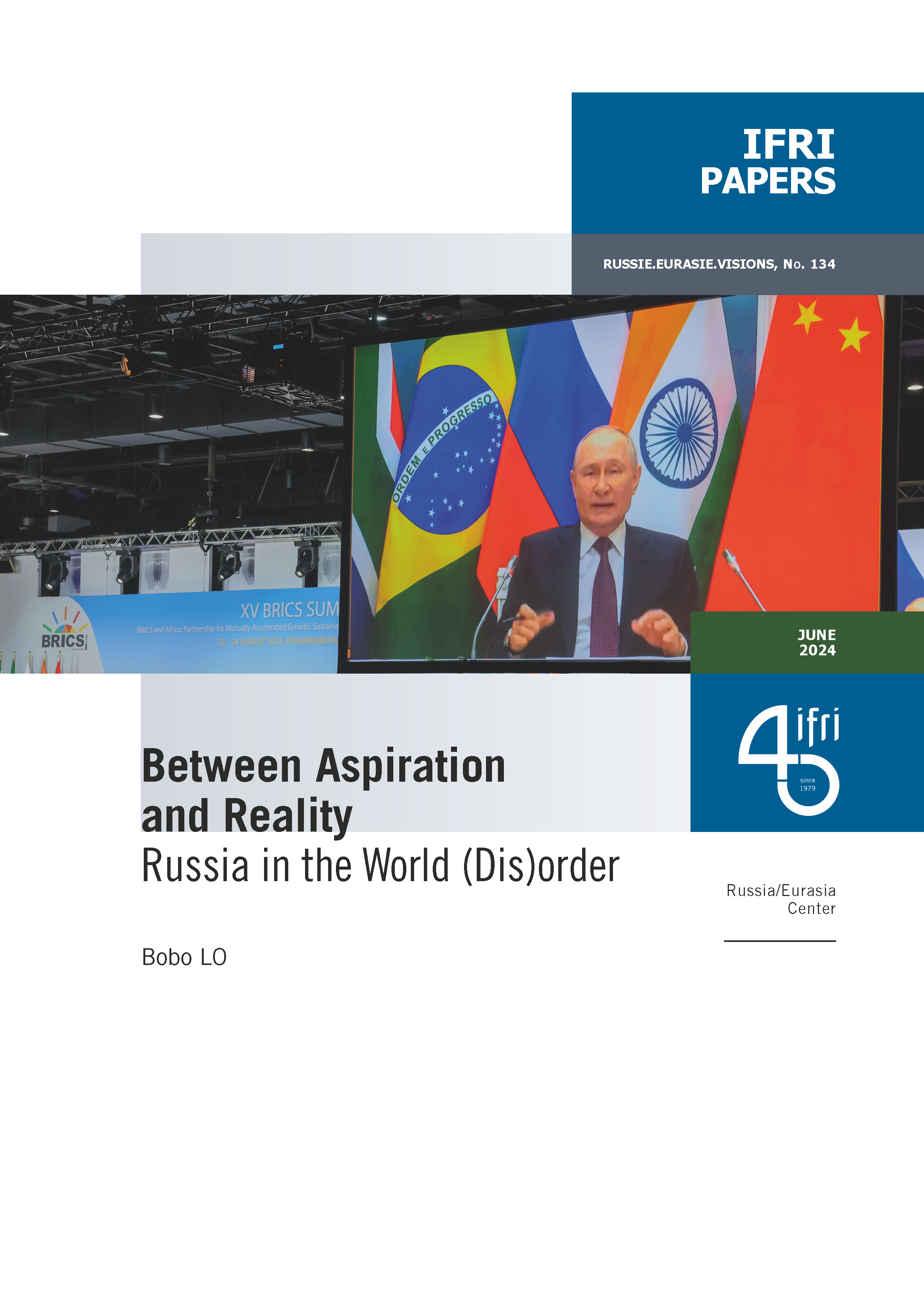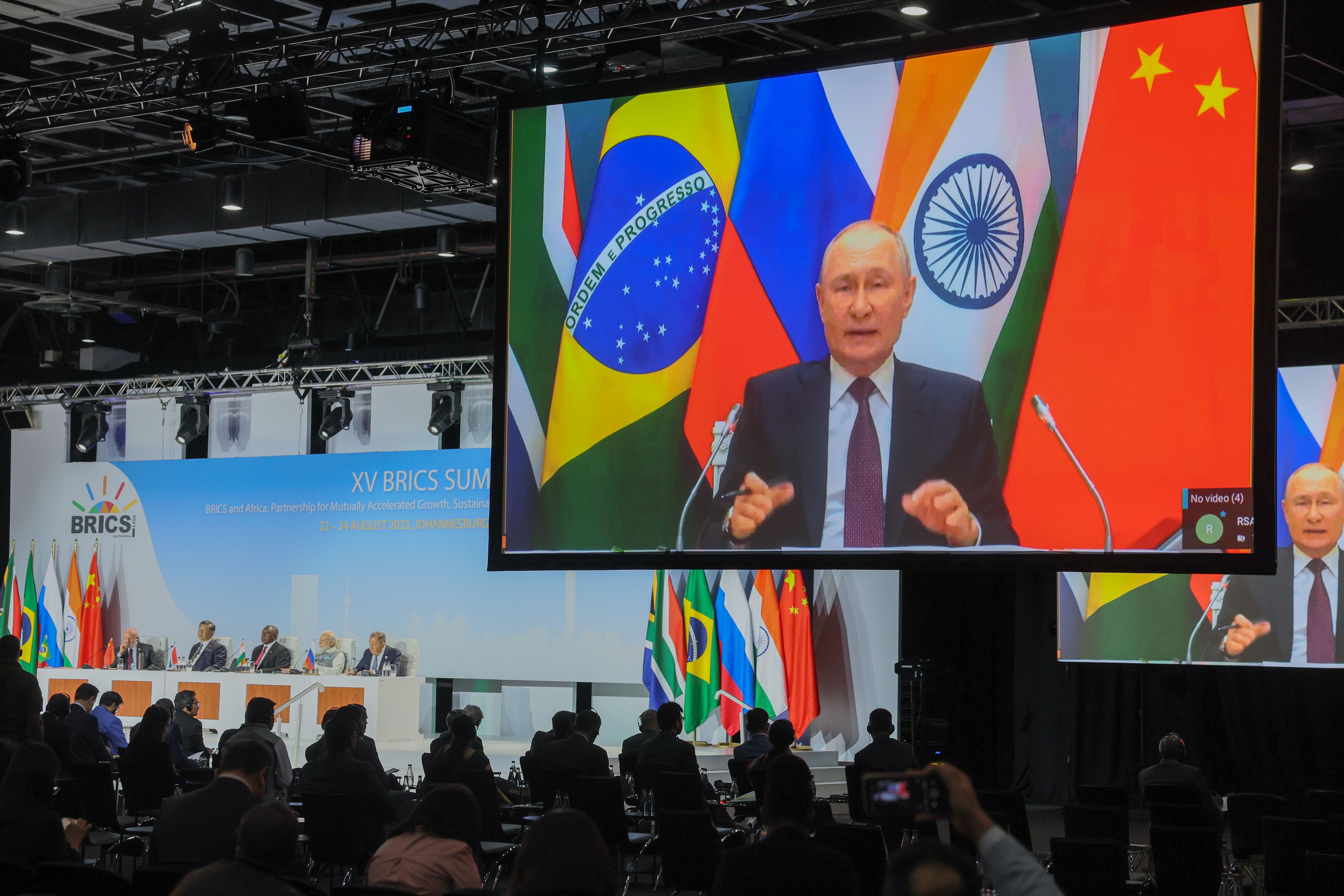Between Aspiration and Reality: Russia in the World (Dis)order

The world has rarely seemed more disorderly than it is today. But in this anarchic environment, some things are constant.

Putin’s foreign policy is centered on the idea that Russia was, is and always will be a great power, playing a leading role in world affairs. This conviction rests on several pillars: the exercise of sovereign power, civilizational messianism, identification with the Global South, and an enduring sense of grievance and insecurity.
Putin’s great power ambitions face considerable constraints. The war in Ukraine has exposed the weaknesses of Russia’s much-vaunted military might and killed off lingering hopes of being a geopolitical balancer between the United States (US) and China. Economic ties with Europe have suffered enormous damage. Strategic dependence on China has grown significantly. And Moscow’s influence in the post-Soviet space has been eroded.
Nevertheless, it would be premature to write off Russia’s prospects. It is a diminished power, but the shortcomings of others may open up opportunities to restore its position and influence. Putin is counting on growing “Ukraine fatigue” in the West, and a Trump victory in the 2024 US presidential election could be a game-changer. Any dilution in Western support for Ukraine would boost Russia’s strategic prospects and encourage Putin’s aggressive inclinations.
Bobo Lo is an Associate Research Fellow with the Russia/Eurasia Center at Ifri. He is also a Non-Resident Fellow with the Lowy Institute, Sydney, Australia; and a Non-Resident Senior Fellow at the Center for European Policy Analysis (CEPA) in Washington D.C. Previously, he was Head of the Russia and Eurasia Programme at Chatham House, and Deputy Head of Mission at the Australian Embassy in Moscow.
Dr. Lo has written several books, including A Wary Embrace: What the China-Russia Relationship Means for the World (Penguin Australia, 2017); Russia and the New World Disorder (Brookings and Chatham House, 2015); and Axis of Convenience: Moscow, Beijing and the New Geopolitics (Brookings and Chatham House, 2008).
Download the full analysis
This page contains only a summary of our work. If you would like to have access to all the information from our research on the subject, you can download the full version in PDF format.
Between Aspiration and Reality: Russia in the World (Dis)order
Related centers and programs
Discover our other research centers and programsFind out more
Discover all our analysesRussia, the Palestinians and Gaza: Adjustments after October 7th
The Soviet Union (USSR), and subsequently the Russian Federation as its internationally recognized legal successor, has consistently sought to play a visible role in efforts to resolve the Israeli-Palestinian conflict.
Deathonomics: The Social, Political, and Economic Costs of War in Russia
The report attempts to outline and examine a truly new phenomenon in Russian society, dubbed “deathonomics”—the making of a mercenary army against the backdrop of the Kremlin’s war in Ukraine, eventually replacing both the Soviet (conscript) and early new Russian (contract) armies. It notes that, by the end of 2023, this trend had turned the military service into one of the highest-paying professions in the country, something not seen in Russia on such a scale since the late 17th century.
Russia's Asia Strategy: Bolstering the Eagle's Eastern Wing
Among Russia’s strategic priorities, Asia traditionally played a secondary role compared to the West. In the mid-1990s, then Foreign Minister Yevgeny Primakov initiated a rapprochement with China and India. Then, in 2014, deteriorating relations between Russia and the West prompted Moscow to begin its “great pivot to the East”.
Kazakhstan After the Double Shock of 2022: Political, Economic and Military Consequences
The year 2022 represented a dual shock for Kazakhstan. In January, the country faced its most severe political crisis since independence, followed in February by Russia’s full-scale invasion of Ukraine, which cast uncertainty over the borders of post-Soviet states. These consecutive crises profoundly shaped Kazakhstan’s domestic and foreign policy.













